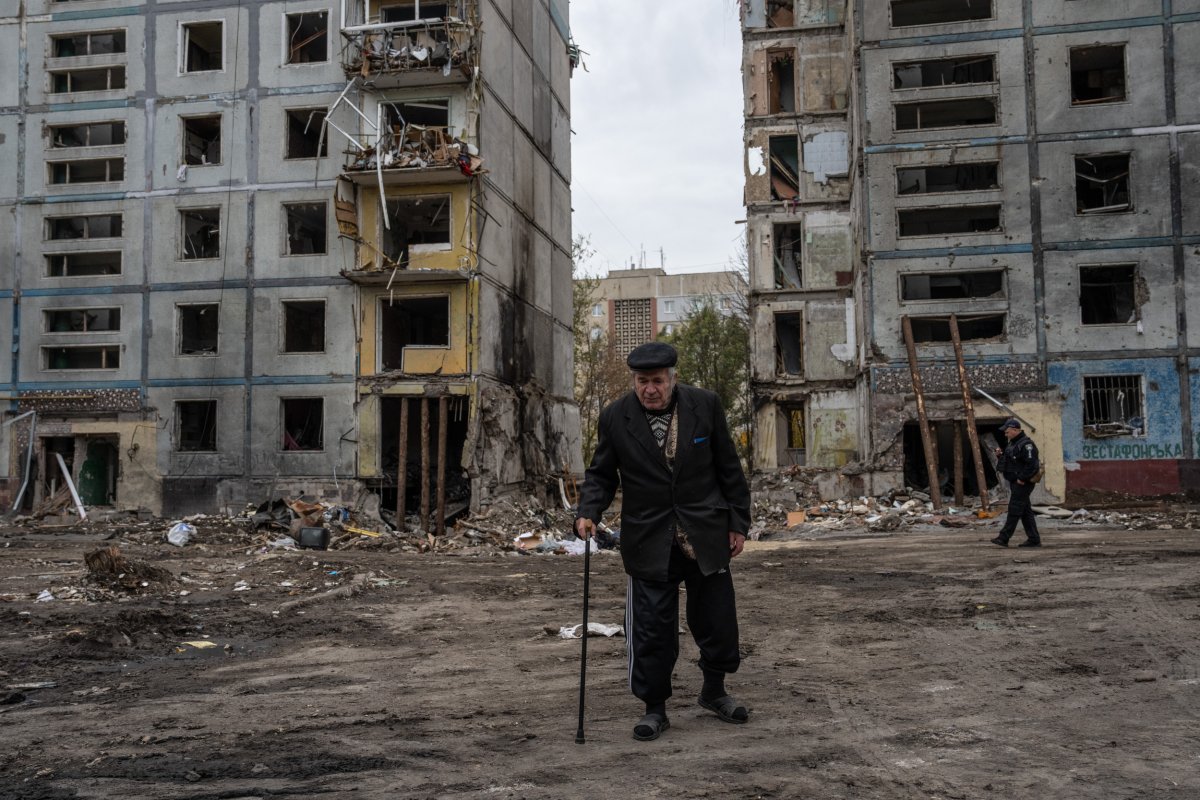The war in Ukraine passed the 10-month mark this week, and the Russian army has settled on a new strategy: deliberately target Ukrainian energy sources to make the winter as cold, dreary, and depressing as possible for the Ukrainians. Millions of people have lost power, with schools, hospitals, homes, and businesses all effected by the relentless attack on Ukraine's energy gride—nearly half of which was knocked out after a particularly fierce fuselage of missiles in mid-November.
One might expect these attacks to result in even more severe diplomatic and economic repercussions for Moscow. In some ways, those expectations have been met; the European Parliament went as far as to label Russia a state sponsor of terrorism, and the G20 released a joint declaration after intense negotiations, faulting the war for producing "immense human suffering" inside Ukraine as well as economic consequences around the world.
Yet the war has demonstrated just how self-interested geopolitics can be. Where you sit often determines where you stand. Russia's actions in Ukraine have been nothing short of brutal, but the fact remains that different countries have different interests to protect and different objectives to pursue. It's true more countries outside the West are chafing at the economic costs associated with the fighting, but it's also true that much of the world doesn't want to burn ties with Moscow, limit its options by picking sides, or outsource its Russia policy to Washington.
A big part of this reality is a clash of perceptions. As Washington and Brussels tell it, the war is an existential struggle between democracies and an aggressive authoritarian Russia. The West has enacted the strongest-ever sanctions regime against a major economy, freezing around half of the Russian Central Bank's $600+ billion in foreign reserves. U.S. and European Union (EU) export restrictions on critical technology are complicating Russia's ability to manufacture everything from cars to electrical appliances and turning the Russian economy into a primitive shell. The EU is set to prohibit all imports of Russian crude by Dec. 5, forcing Moscow to divert as much as 1 million barrels a day to other markets. All of this comes as the U.S. and Europe continue to deliver substantial military aid to Kyiv, with Washington alone sending nearly $19 billion in military equipment since February.
Countries outside the West, however, are opposed to becoming involved in the conflict on principle, aren't participating in the sanctions regime and remain highly dubious of the West's overall narrative about the war. A significant portion of Africa views Western preaching about universal values and respect for democracy as condescending, if not hypocritical, given Washington's own history during the Cold War. To the extent African officials are concerned about the war, the worry is driven more by food security (more than 40 percent of the continent's wheat supply comes from Ukraine and Russia) than the urge to hold Russian President Vladimir Putin accountable.
In Latin America, the objective is to terminate the conflict diplomatically rather than arm one side against the other in hope of a military victory. While it's true that Mexican President Andrés Manuel López Obrador's peace proposal was blasted by critics as naïve and ill-timed, the plan itself was a microcosm of how the region generally views the Ukraine issue. Brazil, the most populous state in Latin America as well as its largest economy, will be just as uninterested in restricting ties with Moscow under incoming President Luiz Inácio Lula da Silva as it was under Jair Bolsonaro; with more than 85 percent of its fertilizer coming from Russia, Brazil can't afford to alienate the Russians, at least until long-term agricultural deals can be struck with alternative suppliers.
The same feelings persist in Southeast Asia. Since February, Indonesia, Vietnam, Cambodia and Malaysia (among others) have been careful to preserve their neutrality. Indonesia's hosting of the G20 leaders' summit is instructive; despite prodding from Washington, Indonesian President Joko Widodo refused to ban Putin from attending (the Russian strongman ended up staying away) and urged Western officials to water down their condemnations of the Kremlin to improve the chances of a joint communiqué being reached. The Association of Southeast Asian Nations (ASEAN), an entity traditionally disinclined to get involved in the problems of other regions, represent contrasting opinions about how to proceed against Russia. To the extent ASEAN has had anything to say about the war, the rhetoric has centered on ceasing the fighting, opening up humanitarian corridors, and promoting a political settlement.

India is a special case. The world's fourth-largest economy historically takes its own course in foreign affairs and is resistant to dividing the world into competing blocs. This is not only a point of sovereignty for Indian officials but a way to maximize New Delhi's bilateral relationships, maintain positive ties with as many countries as possible, and strike the most advantageous deals for the benefit of the Indian population. India's decision to exponentially increase purchases of discounted Russian oil (Russia now accounts for 21 percent of India's oil supply compared to 1 percent before the war), as well as its insistence on maintaining business-like relations with Moscow, wasn't a surprise.
The fact remains that, on the Ukraine war, much of the world isn't on the same page as the U.S. and Europe. Different countries have different interests, and they are eager to protect them notwithstanding the handwringing. Officials in the West would be wise to keep this basic but fundamental point of international relations in mind.
Daniel R. DePetris is a fellow at Defense Priorities and a foreign affairs columnist for the Chicago Tribune and Newsweek.
The views expressed in this article are the writer's own.
Uncommon Knowledge
Newsweek is committed to challenging conventional wisdom and finding connections in the search for common ground.
Newsweek is committed to challenging conventional wisdom and finding connections in the search for common ground.
About the writer
To read how Newsweek uses AI as a newsroom tool, Click here.








